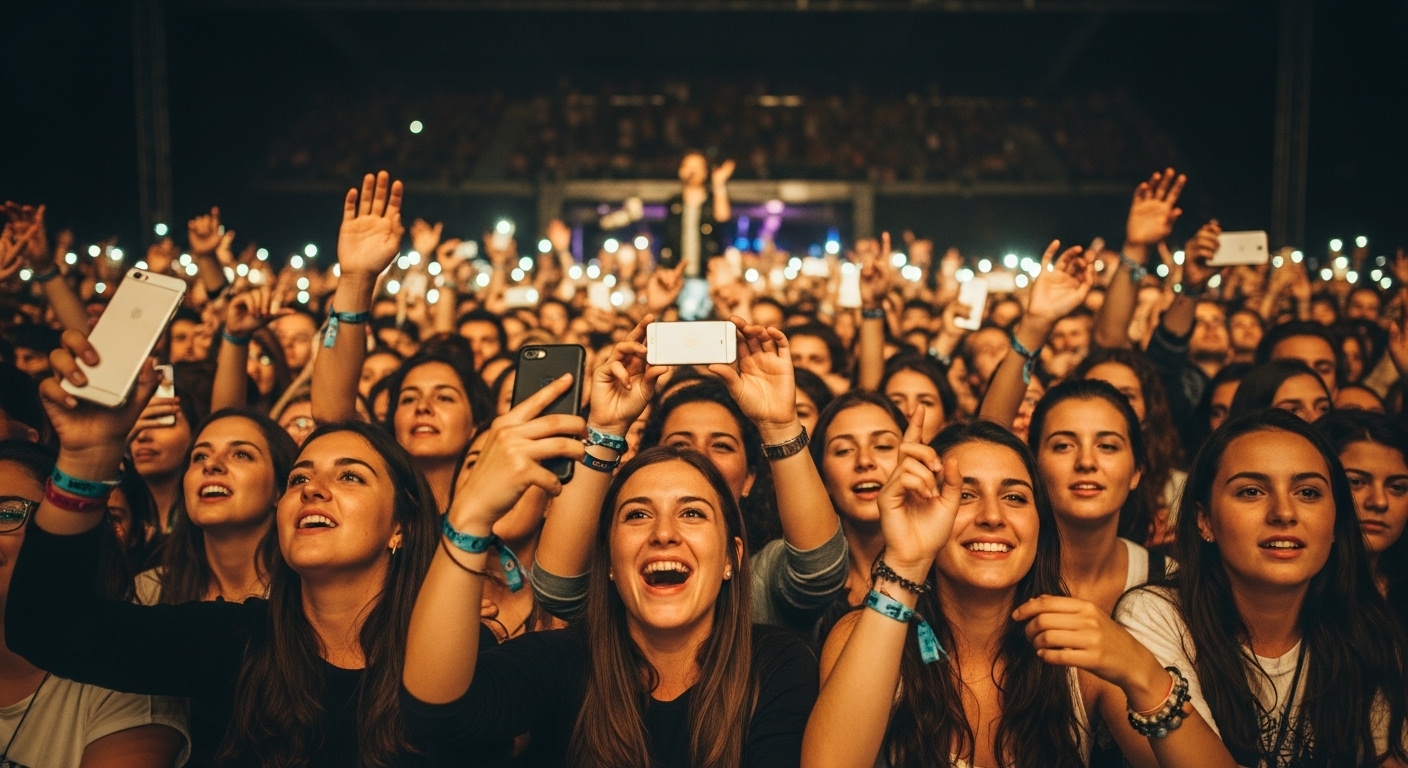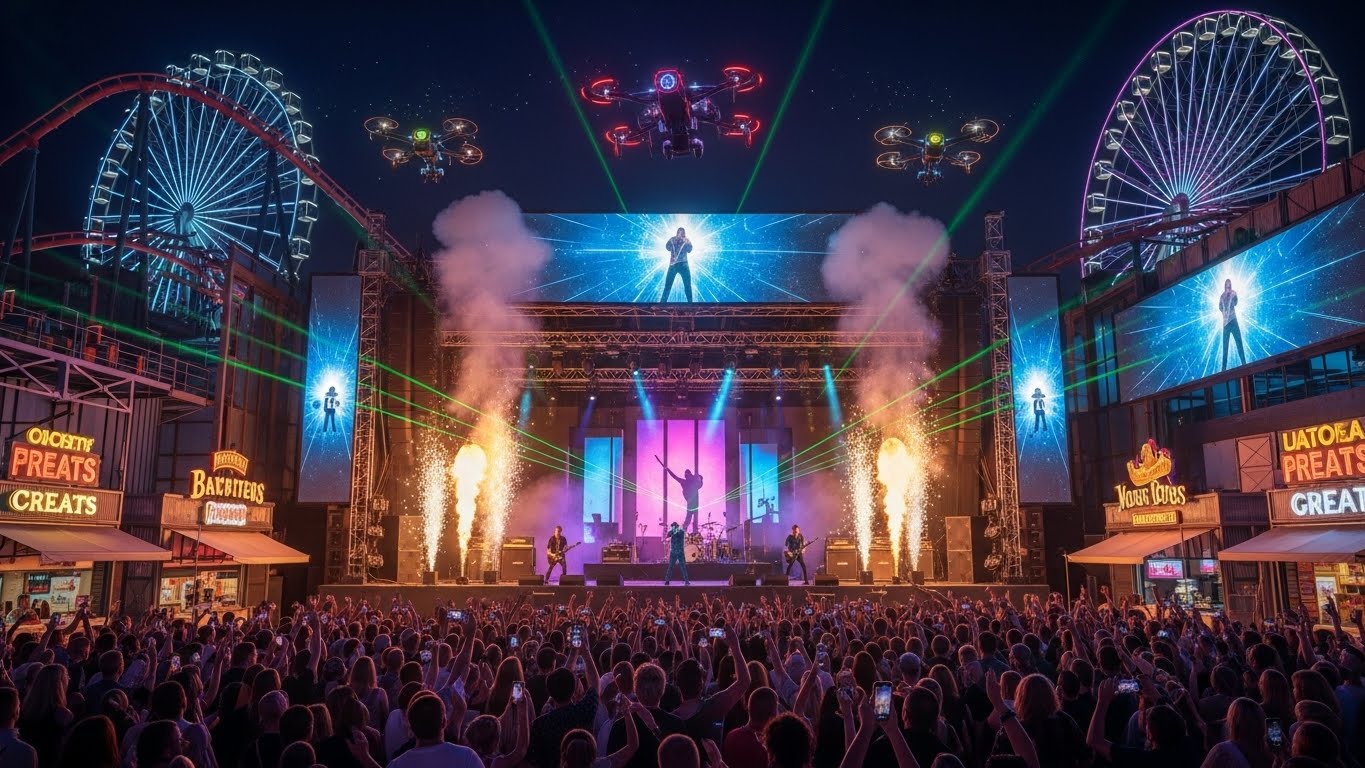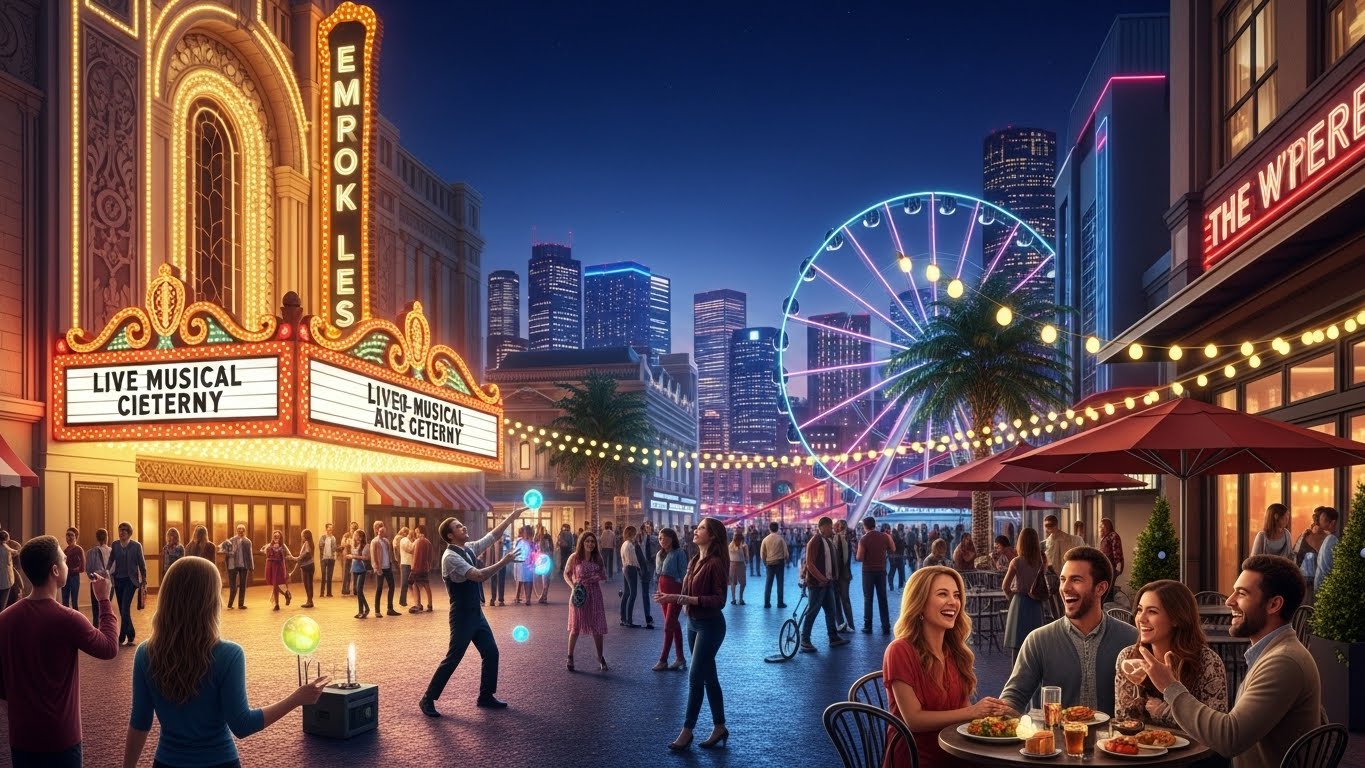Entertainment has always played a significant role in human culture. It’s our way of escaping, connecting, laughing, and learning about the world around us. The definition of entertainment has shifted and evolved over time, from ancient theater performances to the creation of the internet and the explosion of digital media. In the 21st century, entertainment has become more accessible, diverse, and immersive than ever before. In this blog post, we’ll dive into how entertainment has changed over the years and where it’s headed in the future.
The Digital Revolution: A New Era in Entertainment
The digital age brought with it an immense transformation in how we access and consume entertainment. When the internet became widely available in the late 1990s, it set the stage for the biggest shift in entertainment history. Suddenly, movies, music, books, and games were available at the click of a button. The traditional model of entertainment—whether it be visiting a movie theater, renting a DVD, or listening to music on the radio—began to break down.
Streaming services like Netflix, Hulu, and Spotify became household names, offering access to an entire library of content with a simple monthly subscription. Instead of having to leave home, you could watch the latest film or binge-watch a series all from the comfort of your couch. These streaming platforms shifted the focus from scheduled broadcasts to on-demand entertainment, allowing consumers to choose what they wanted to watch and when they wanted to watch it.
The Rise of Social Media: Changing How We Engage with Entertainment
Alongside streaming services, social media also played a crucial role in the evolution of entertainment. Platforms like YouTube, Instagram, Twitter, and TikTok gave birth to a new wave of content creators, offering a space for people to express their creativity and connect with global audiences. Social media has become a central hub for entertainment, allowing fans to engage with their favorite stars, influencers, and creators in real-time.
Gone are the days when celebrities were only accessible through TV appearances and press interviews. Now, they are active on social platforms, giving fans a behind-the-scenes look into their lives and interacting directly with them. Social media has also democratized entertainment in many ways—giving rise to people who, without the traditional gatekeepers of the industry, can build large followings and even create their own entertainment empires.
Interactive Entertainment: The World of Video Games
Another key aspect of modern entertainment that has grown exponentially is video gaming. Once considered a niche hobby, video games have now become a multi-billion-dollar industry that appeals to people of all ages. Video games today are more immersive than ever, offering vast, open-world environments, stunning graphics, and intricate storylines. Titles like “The Last of Us” and “Red Dead Redemption” have elevated gaming to a level of artistry, telling deeply emotional and complex stories that rival the best of Hollywood cinema.
The rise of eSports and live-streaming platforms like Twitch has also brought gaming into the mainstream. Watching people play video games has become a form of entertainment in itself, with millions tuning in to watch their favorite streamers, athletes, and gamers compete. The competitive nature of eSports and the global tournaments that take place regularly make video games not just an individual experience, but a collective one, fostering a sense of community and shared excitement among fans.
Immersive Entertainment: The World of Virtual Reality
In recent years, another breakthrough in entertainment technology has emerged: virtual reality (VR). VR allows users to experience a fully immersive, interactive world, offering new possibilities for gaming, education, and entertainment. While still in its early stages, VR has shown incredible promise, offering experiences that put the user at the center of the action.
For gaming, VR offers a level of immersion that traditional gaming cannot replicate. Imagine walking through a futuristic city or exploring the ocean floor while completely immersed in a 360-degree environment. For movies and shows, VR has begun experimenting with interactive storytelling, where viewers can choose how the narrative unfolds, making them active participants rather than passive observers. As VR technology becomes more accessible and affordable, it will undoubtedly play an even larger role in how we experience entertainment in the future.
The Influence of Pop Culture and Fandoms
Pop culture has always had a strong influence on entertainment, but in the digital age, that influence is more widespread than ever. Television shows, movies, and music dominate discussions online, and large-scale fandoms have formed around franchises like “Harry Potter,” “Star Wars,” “Marvel,” and “Game of Thrones.” Social media platforms give fans a voice and a community to discuss, dissect, and debate every aspect of their favorite series, creating a sense of belonging that was not as easily attainable in the past.
This level of engagement between fans and content creators has also led to new opportunities for interactive entertainment, such as fan conventions, live-streamed events, and behind-the-scenes content. These fandoms have even influenced the direction of content, with showrunners and filmmakers taking fan feedback into account to shape future storylines and character arcs.
The Blurring of Entertainment and Content Creation
One of the most interesting developments in entertainment over the past decade is the blurring of lines between creators and consumers. Social media platforms and YouTube have allowed almost anyone to become a content creator, sharing everything from vlogs to tutorials to short films. The democratization of content creation has led to the rise of influencers, people who have built massive followings by simply sharing their lives, opinions, and personalities with the world.
These influencers have become the new celebrities, and many of them are monetizing their online presence through brand partnerships, merchandise, and even their own entertainment projects. You don’t need to have a traditional TV show or movie deal to become a household name. The ability to build a brand online has created a new kind of entertainment economy, one that is built on authenticity, relatability, and direct fan interaction.
The Future of Entertainment: Trends to Watch
Looking ahead, there are several trends that will likely shape the future of entertainment. Here are a few to keep an eye on:
1. AI and Personalization
Artificial intelligence is already starting to influence entertainment, and in the coming years, we can expect it to become even more personalized. From recommendations on Netflix to personalized news feeds on social media, AI is already shaping how we consume content. As technology advances, it’s likely that entertainment will become even more tailored to individual tastes and preferences, with algorithms providing a hyper-personalized experience for each user.
2. Sustainability in Entertainment
As climate change continues to be a global concern, the entertainment industry will likely face increasing pressure to become more sustainable. From environmentally-friendly production practices to reducing waste at live events, sustainability will be an important consideration in how entertainment is created and consumed.
3. Hybrid Entertainment Experiences
The pandemic accelerated the shift to virtual events and online entertainment, but as the world begins to return to normal, we may see more hybrid entertainment experiences. Concerts, conferences, and even film releases could involve a combination of in-person and virtual participation, allowing for greater accessibility and global reach.
4. Interactive and Immersive Entertainment
With advancements in VR, AR (augmented reality), and interactive storytelling, entertainment will become even more immersive. Imagine stepping into your favorite movie or TV show and becoming a part of the action. These new technologies offer incredible potential for a more hands-on, personalized entertainment experience.
5. Streaming Wars: Consolidation or Expansion?
The streaming wars are far from over, and we can expect continued competition between major players like Netflix, Amazon Prime, Disney+, and others. Whether through consolidation, new content strategies, or innovations in streaming technology, the future of how we access movies, TV shows, and other content will continue to evolve. The question remains: will we see more mergers and acquisitions or will new platforms continue to emerge?
Conclusion: A New Age of Entertainment
Entertainment in the 21st century is no longer a passive experience. It’s interactive, on-demand, and tailored to the individual. From the rise of digital streaming platforms to the explosion of social media influencers, the entertainment landscape has undergone a radical transformation. Whether it’s through gaming, social media, VR, or traditional forms of media, entertainment is more accessible, diverse, and immersive than ever before.
Looking ahead, the future of entertainment is full of promise. Advances in technology and shifts in consumer behavior will continue to reshape the industry, offering new ways for people to engage, connect, and experience the world of entertainment. In a rapidly changing landscape, one thing is certain: entertainment will remain a central part of our lives, constantly evolving to meet the demands and desires of a global audience.



